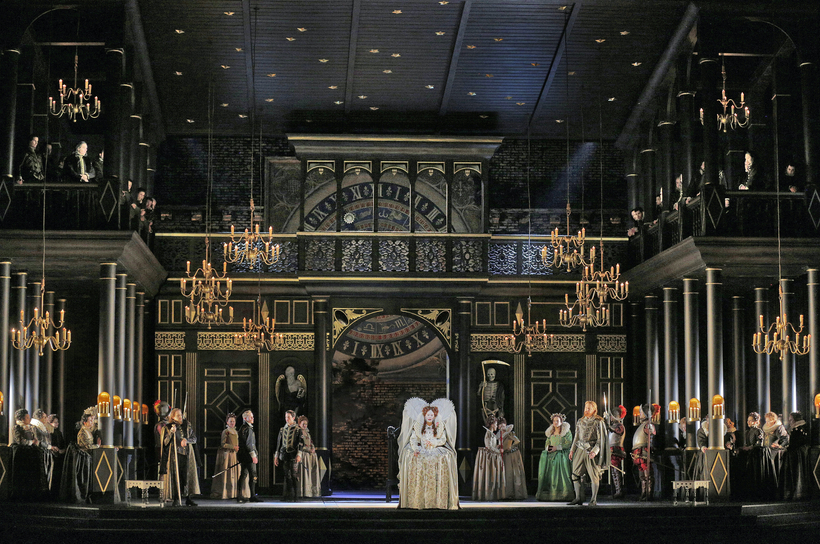Back in the day, everyone knew that opera was all about voice, voice, voice. But that was then. As Verdi’s enslaved Ethiopian princess Aida in the recent Lotte de Beer production for the Paris Opéra, the Canadian diva Sondra Radvanovsky traipsed around after a smaller-than-life earth-mother mannequin operated by a trio of puppeteers. Thus the doll preempted the diva, reducing her to “just” a voice. The affinity with Japan’s great Bunraku theater lent the show an exotic touch, but honestly… (Officially unavailable in the U.S., the production leads a shadow life on YouTube, and it’s worth seeking out for the phenomenal suite of quick-changing, anachronistic tableaux vivants in place of the Triumphal March.)
As Britain’s first Queen Elizabeth in Sir David McVicar’s 2016 Metropolitan Opera staging of Donizetti’s Roberto Devereux, Radvanovsky evoked traditions from Japan to more rewarding effect, sweeping onstage like some dragon from the Kabuki, her red peruke piled high, her chalk-white face tilted skyward, her cane electric with suspicion. On the far side of the footlights, you trembled for your life. Best of all, the histrionics flowed straight from the heartache and flamboyance of the music. Radvanovsky’s death scene numbers among the glories of the Met’s last dozen seasons: no sprint to the finish line at Maurizio Benini’s restrained tempo but a controlled flameout of awesome majesty. Uneasy lies the head that wears a crown!
Have I failed to mention Matthew Polenzani in the title role as the queen’s favorite, Elīna Garanča as the duchess who has won his heart, and Mariusz Kwiecień as the duke who sees to it that he pays? It’s a dream cast.
Roberto Devereux is available for streaming on the Met Opera Web site
Matthew Gurewitsch writes about opera and classical music for AIR MAIL. He lives in Hawaii

